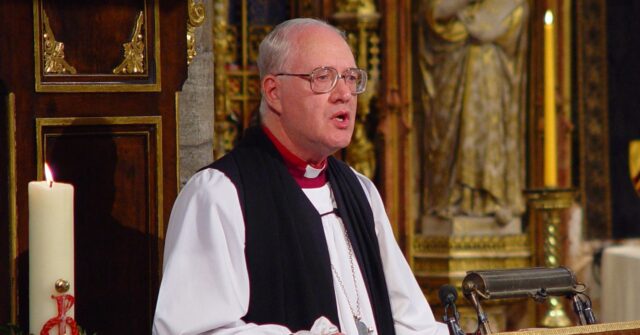Former Archbishop of Canterbury George Carey has resigned as a priest amid serious allegations related to his handling of a sexual misconduct case involving another clergyman. Carey, who led the Church of England from 1991 to 2002, stepped down following a BBC investigation that revealed he allowed a priest, David Tudor, to return to ministry despite being previously banned due to allegations of sexual abuse. The investigation has raised significant questions about the Church’s management of abuse claims and its commitment to justice for victims.
In a resignation letter dated December 4, Carey noted that he has served in ministry since 1962 and will soon turn 90, although he did not reference the BBC investigation directly. The focus of the report was on Carey’s role in advocating for Tudor’s reinstatement after he was suspended for five years over allegations involving teenage girls. This decision has sparked outrage and raised concerns about the Church of England’s safeguarding practices, particularly in the context of the broader clergy sexual abuse crisis that has affected various religious institutions globally.
The situation escalated further as Archbishop of York Stephen Cottrell faced scrutiny for his own handling of Tudor’s case. Reports indicated that Cottrell allowed Tudor to maintain his position, despite being aware of restrictions placed upon him, which included a lifetime ban from being alone with children as well as compensation payments made to one of his victims. This pattern of enabling problematic behaviors among clergy members has drawn public ire and demands for accountability within the Church of England hierarchy.
David Tudor had a troubling past, having admitted to engaging in sexual relationships with two teenage girls in the 1980s, which ultimately led to his lifetime ban from ministry in October. His return to active ministry under Carey’s guidance raises critical concerns about the decision-making processes within the Church, particularly regarding the protection of vulnerable individuals. The fallout from these revelations not only places pressure on those in leadership positions but also emphasizes the systemic issues of accountability and transparency in the Church.
Carey’s resignation coincided with a time of transition for the Church of England, as Archbishop Justin Welby also stepped down due to similar concerns regarding his handling of sexual abuse allegations. Cottrell is set to take over as the church’s spiritual leader next month, marking a pivotal moment for the future of the institution. It is clear that the Church of England is facing a significant crisis of trust that requires comprehensive reform and a reevaluation of its approach to safeguarding and leadership practices, particularly in light of the divergent views on social issues within the Anglican Communion.
As the Church grapples with these challenges, the implications are wide-reaching, affecting not just those involved directly in these cases but also the broader community of clergy and parishioners. The ongoing scrutiny surrounding these scandals serves as a catalyst for necessary changes in how cases of misconduct are addressed, fostering an environment that prioritizes the safety and well-being of all members. The Church must navigate these issues delicately, balancing the need for internal reform with the spiritual and communal responsibilities that come with its leadership roles in a diverse and globally interconnected faith community.

